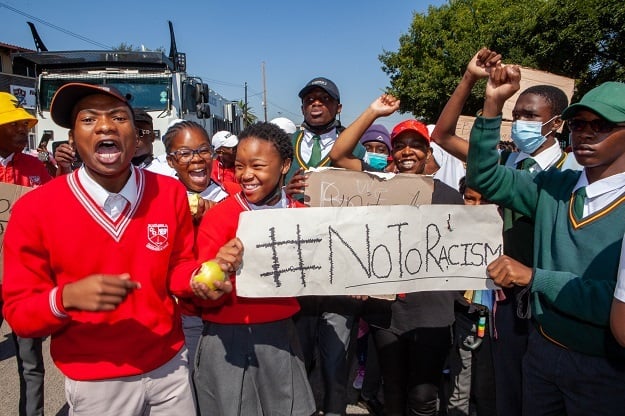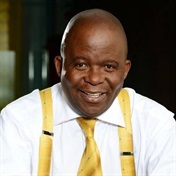
We have been socialised to see the world from the view of the majority culture, and often we do not realise how we continue to perpetuate stereotyping and prejudice, writes Rich Mkhondo.
Take a few seconds and remember the time when you were disrespected simply based on how you look or the colour of your skin. To be specific, in what ways have you personally experienced treatment different from what you desired simply because of your race?
Racial sensitivity is higher now than ever, and every now and then, we experience prejudicial behaviours despite the end of legalised apartheid. Race and colour affect everybody. Race and colour penetrate into every crevice of social life.
No-one escapes racism
Racism is a terrible wound that afflicts all of us. No one escapes it. Here are just a few recent incidents to refresh your memory.
Last July, amid the unrest and looting in Gauteng and KwaZulu-Natal, historical racial tensions between African and Indian communities exploded in Phoenix on the outskirts of Durban.
Armed with semiautomatic rifles, machetes and pistols, groups formed illegal roadblocks and burned tyres to bar access to their areas. Indian residents formed vigilante groups and barred any black people from entering or passing through the suburb.
Thirty-six people died in Phoenix's racial killings, prompting Police Minister Bheki Cele to refer to them as "heinous criminal and racist incidents that resulted in brutal killings and injuries, horrendous damage to property, and untold pain and trauma."
READ | Ebrahim Harvey: The tragedy of Phoenix - When poverty, inequality, fear and racism mix
Following the Phoenix incidents, the Democratic Alliance exacerbated racial tensions by putting up election posters many deemed racially inflammatory. "The ANC called you racists (but) the DA calls you heroes," one of the posters said.
Lest we forget that Cornwall Hill College in Pretoria school's alumni and pupils produced a report which among others said black pupils were told they came from apes, or called by "bloody k word" and being barred from speaking their home languages.
Unpresentable hair
A former pupil said her first encounter with racism was when a teacher told her, "Your hair is unpresentable. It is messy and it is not the Cornwall way"
Oh, how about members of the Economic Freedom Fighters who protested in front of the Brackenfell High School over allegations that a school graduation event was attended only by white pupils.
Or who can forget when international beauty brand, TRESemmé, released a series of adverts, which were carried by local retailer Clicks, featuring black women's hair as "frizzy and dull" and "dry and damaged" while showcasing white women's hair as "normal hair" and "fine and flat hair".
READ | Ebrahim Fakir: Clicks got baited... and so did the truth
Now Hoërskool Jan Viljoen in Randfontein is the talking point. Just recently violence broke out at the school following an altercation between black and white pupils. In a widely circulated video, a white parent can be heard using the K-word four times, saying that apartheid should be implemented at the school.
It is no wonder the South African Human Rights Commission has said of the between 8 000 and 9 000 complaints it receives annually, more than 90% of them are rooted in racism. Just under 1 000 are equality related. Many terrible incidents take place in remote rural areas, and few receive much publicity.
"Isms" or phobias
So why are we constantly reminded of this emotional, polarising and uncomfortable issue? Blame this on the "isms" and "phobias" rooted in prejudice. Even though not every word ending in "ism" connotes a prejudice, most prejudices can take an "ism" or phobia form.
Here are just some of the "isms" and phobias, discriminatory beliefs based in stereotypes, fear, and ignorance. Racism, colourism, tokenism, anti-Semitism, sexism, ableism, ageism, classism; elitism; ethnocentrism; heterosexism/Homophobia; xenophobia; islamophobia, atheophobia and even fatphobia.
READ | New draft law brings much stricter rules against discrimination. Here's what you need to know
According to dictionaries and academic journals, "racism happens when one race is held up as better than others, and the least powerful group is oppressed."
Books and academic journals inform us that sexism occurs when one sex is given opportunities and privileges not afforded the other sex. Ableism occurs when people with disabilities are not given fair treatment. Ethnocentrism focuses on the belief that only some ethnic groups are better.
Heterosexism happens when all individuals are assumed to be or want to be in traditional male/female social/sexual relationships.
Classism assumes that everyone has access to an individual or family income above the poverty level.
Unlearning the isms and phobias
The reality is it is impossible in this society not to encounter people different than ourselves. When I studied Sociology at Rhodes University, I learnt that we imbibe "isms" and phobias through our daily socialised behaviour and stereotypes.
For example, our children may imbibe classism if they are made to believe that all poor people are unkempt and dirty.
Unlearning the "isms" and phobias is a continuous process. We have been socialised to see the world from the view of the majority culture, and often we do not realise how we continue to perpetuate stereotyping and prejudice.
Unlearning any of the "isms" requires acknowledging our prejudices and stereotypes and then moving forward.
Some individuals distance themselves from prejudice by intellectualising the problems or viewing their own knowledge as being superior to others.
Denialism is also at work when we take the view that "I am not racist, I have black friends. I have black neighbours. I didn't cause the problem, so I'm not responsible for any racism solution-oriented behaviour."
Some people avoid prejudice by distancing themselves, suggesting that prejudice is not a problem.
Others suggest that nothing can be done about racism, for example. Black people or white people do not step up and become involved. They blame the victims, intimating eliminating prejudice is their problem.
That is why racism has become so deeply rooted and self-perpetuating. It is evolving from open to subtle manifestations such that we are unable to escape it and its concomitant "isms" and phobias in our everyday lives.
Parents, children and racial bias
Given the ongoing discussion about racial bias and racism in our Rainbow Nation, how do our children learn racial bias?
We know that children learn about racial differences and racial bias from an early age at home, through how their parents deal with and react to racial and ethnic differences and also from teachers, friends and our own community.
READ | Things some South Africans think are fine to say at work — but are actually racist and offensive
The process of learning racial bias is just like learning a new language. Like language immersion, children exposed to a racialised society will gain fluency in racial bias even if their parents do nothing.
So how should we deal with racial biases? We need to acknowledge that racial differences and biases exist. We need to confront our own prejudice and model how we want our children, communities, friends and families to respond to others who may be different from us. Talking about race is not racist. It's OK and important.
Racism is an uncomfortable issue that can only be overcome if met with personal courage.
Embracing diversity and racial equality
Racial equality can only flourish when we treat others the way we want to be treated. Let us do what is right both legally and morally, even when no one is watching.
It is difficult, emotionally draining and scary to speak up against racism, but we must. Indeed, it is challenging for some to embrace diversity and racial equality, but we must.
- Rich Mkhondo runs The Media and Writers Firm - - www.mediaandwritersfirm.com - - a content development and reputation management hub.
To receive Opinions Weekly, sign up for the newsletter here.
*Want to respond to the columnist? Send your letter or article to opinions@news24.comwith your name and town or province. You are welcome to also send a profile picture. We encourage a diversity of voices and views in our readers' submissions and reserve the right not to publish any and all submissions received.
Disclaimer: News24 encourages freedom of speech and the expression of diverse views. The views of columnists published on News24 are therefore their own and do not necessarily represent the views of News24.




 Publications
Publications
 Partners
Partners


























